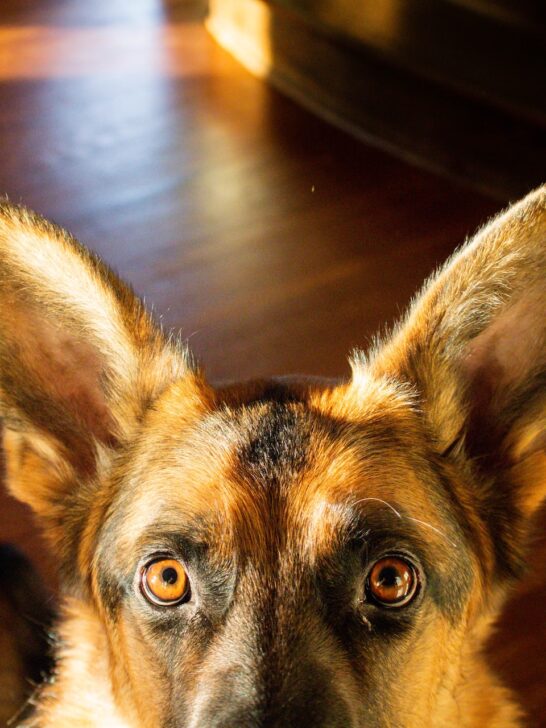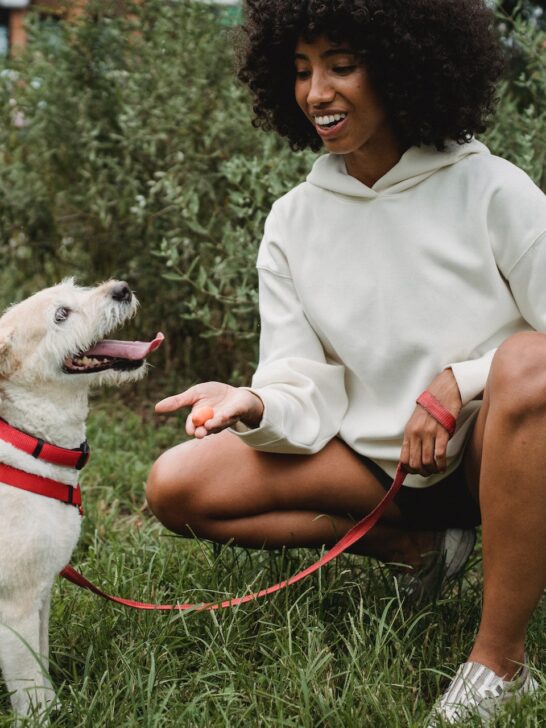How to Take Care of a 4-Month-Old German Shepherd
At four months old, your German Shepherd puppy is nearly grown up. By this age, they have already developed their personality and characteristics.
It is when owners need to start socializing and obedience training their German Shepherd pup to help them become well-rounded adults.
German Shepherd dogs experience a rapid growth spurt during the first four months. They may put on up to 2 pounds per week during this time!
Along with this weight gain comes an increase in strength and energy levels. To help you prepare for this challenging time, we’ve created this guide on how to take care of a 4-month-old GS puppy.
Let’s review some major points like size, grooming, and diet.
Average Size and Height

At four months old, a male GSD puppy will typically be 11 to 14 inches tall and 35 to 40 pounds in weight.
Female German Shepherds may be slightly smaller, averaging 10 to 12 inches in height and 31 to 35 pounds in weight.
However, there is some variation between individual dogs, so these numbers should be used as a general guide, not a hard-and-fast rule.
German Shepherds are a large breed of dog, and they continue to grow and fill out until they reach maturity and become adult German Shepherds at around the 18-month mark.
During this time, they may gain an additional inch or two in height and 20 to 30 pounds. After they reach adulthood, their size will remain relatively stable.
Nutrition for a 4-Month-Old German Shepherd
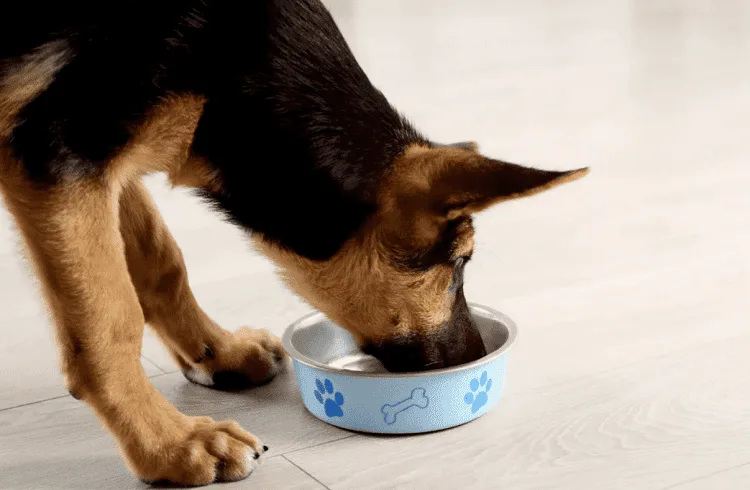
German Shepherds average between 50 and 90 pounds when fully grown. It means they have high energy needs and require a diet rich in protein and calories.
The amount of food will vary depending on the age and activity level of the dog. Feed your puppies three times daily and adult dogs twice daily.
For example, a highly active German Shepherd may need up to 2,100 calories daily, while a less active dog may only need 1,272 calories daily.
The amount of calories needed varies depending on the dog’s age, breed, and size. A rule of thumb is that for each pound the dog weighs, this requires about 40-60 calories daily.
German Shepherds aged 4 to 9 months need 1 cup to 1 ¾ cup of puppy food each meal and 2 to 2 ½ cups of adult dog food for 9- to 12 months old dogs.
Regardless of the caloric intake, all German Shepherds should have a diet rich in protein and low in fat.
The ideal diet for a German Shepherd puppy should have a guaranteed analysis of 20% – 25% protein, 10% – 15% fat, and 3% – 7% fiber.
Physical and Behavioral Changes
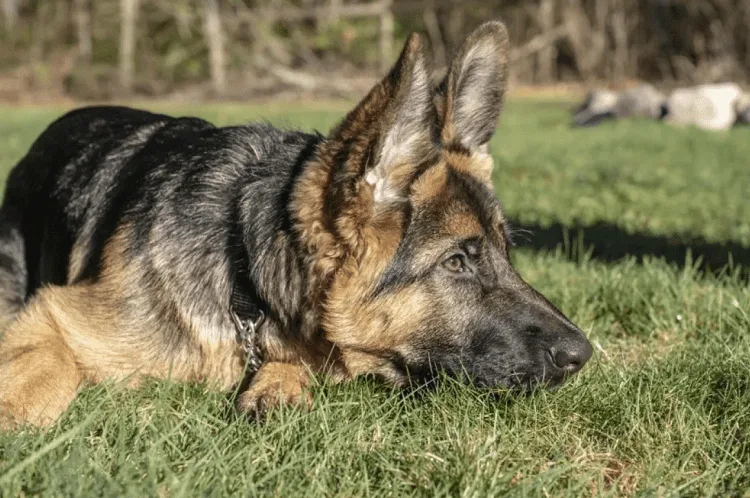
At four months old, German Shepherds are just beginning to enter their teenage years. They’re growing rapidly and becoming more independent.
Here are some physical and behavioral changes you may see in your four-month-old German Shepherd.
First, their energy levels will start to increase. They’ll want to play more and may become restless if left alone for too long. It is normal behavior for a healthy pup, so don’t worry too much.
Ensure you provide plenty of opportunities for exercise, such as walks, runs, and interactive games.
Second, their coats will begin to change. German Shepherds have two coats – a dense undercoat and a softer outer coat.
They’ll shed their puppy fur at four months old in favor of their adult coats. This process can take several months, so be patient while your pup grows into its new look.
German Shepherds are known for being loyal and obedient dogs, but they may start testing boundaries at four months old. It is normal behavior as they learn what’s acceptable and what’s not.
Finally, their behavior may become more independent.
Be consistent with puppy training and rewards; your pup will quickly learn what you expect from them.
Positive Reward-Based Obedience Training
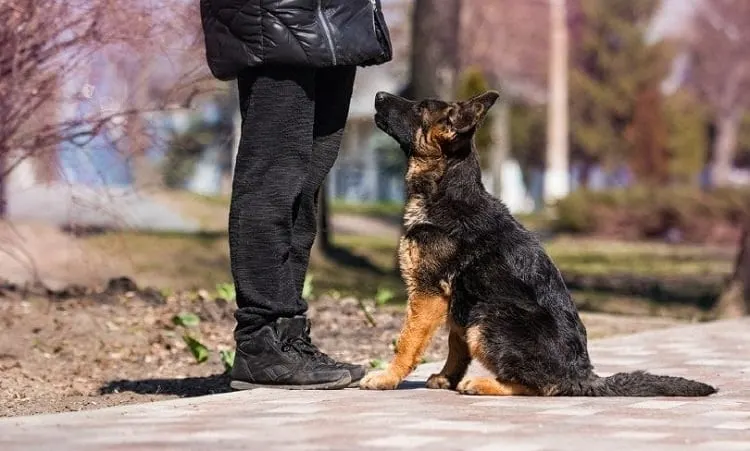
Reward-based training is an effective way to teach your dog obedience commands. It is especially well suited for puppies, who are often motivated by food.
For a 4-month-old German Shepherd puppy, you can start by teaching basic commands such as sit, down, and stay.
Once your puppy has mastered these commands, you can begin to add more advanced tricks to their repertoire.
As your puppy learns new tricks, be sure to offer them plenty of rewards in the form of treats, praise, or both. Your puppy will soon respond to your commands with patience and consistent practice like a pro.
How to Groom a 4-Month-Old German Shepherd?
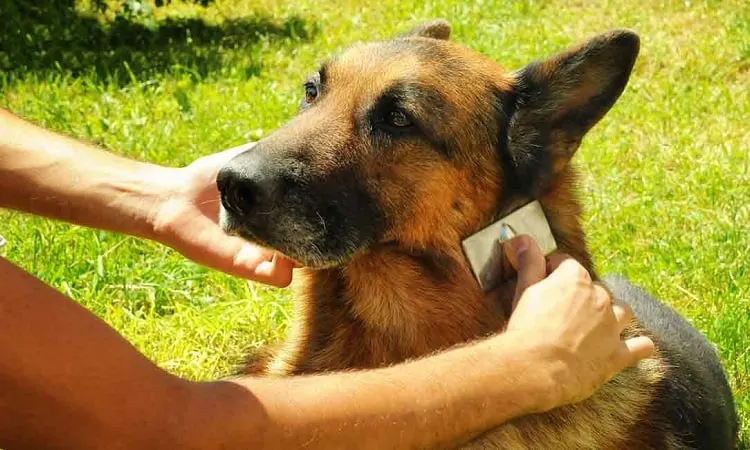
You’ll want to start teaching your pup good grooming habits as soon as possible so that they enjoy the clean-up process.
Fur Care
One of the most distinctive features of a German Shepherd is its lush, thick fur. Fluffy fur is cute but requires special care to ensure that it stays healthy and looks its best.
For example, German Shepherds should be brushed frequently, at least once weekly. It helps to remove tangles and knots and can also help to distribute natural oils throughout the coat.
In addition, it’s recommended to bathe your German Shepherd puppy every few days using a gentle dog shampoo.
However, avoid over-bathing, as this can strip away protective oils and leave the coat dull and dry.
Nail Care
Another essential part of grooming is nail care. German Shepherds have relatively quick-growing nails, so trim them regularly.
If left untrimmed, the nails can become overgrown and uncomfortable for your pup. In extreme cases, they may even start to curl under and grow into the pads of the feet.
To avoid this, you’ll want to trim your German Shepherd’s nails every two to three weeks. You can do this at home using a dog nail trimmer or take them to a professional groomer.
Either way, avoid cutting the nails too short, as this can be painful for your pup.
Dental Care
Another important aspect of grooming is dental care. German Shepherds are prone to dental problems, such as plaque buildup and gum disease.
To help prevent these problems, you’ll want to brush your puppy’s teeth at least once a week. In addition, you can give them special dog treats designed to clean their teeth and promote oral health.
Ear Care
Finally, don’t forget to care for your German Shepherd’s ears as they are prone to ear infections, so they must clean their ears regularly. It can be done at home using a dog ear cleaner and cotton balls.
Apply the cleaner to the inside of the ear, and then use the cotton ball to wipe away any dirt or debris.
In addition, you should check your German Shepherd’s ears regularly for any signs of infection, such as redness, swelling, or discharge.
If you notice any of these symptoms, take them to the vet for further treatment.
Chew Toys for Your 4-Month-Old German Shepherd

At four months old, a German Shepherd is still in the teething stage and will need to chew toys to help relieve the pain and discomfort of growing new teeth.
The best chew toys for 4-month-old German Shepherds are those made of durable material that can withstand a lot of chewing. Nylon and rubber are two good options.
You should also look for chew toys specifically designed for teething puppies. These toys often have ridges or nubs that help to massage the gums and promote healthy teeth growth.
In addition to helping with teething pain, chew toys can also help prevent boredom and destructive chewing behavior. Be sure to provide your pup with plenty of chew toys to keep them happy and healthy.
4-Month-Old German Shepherd – Health Issues
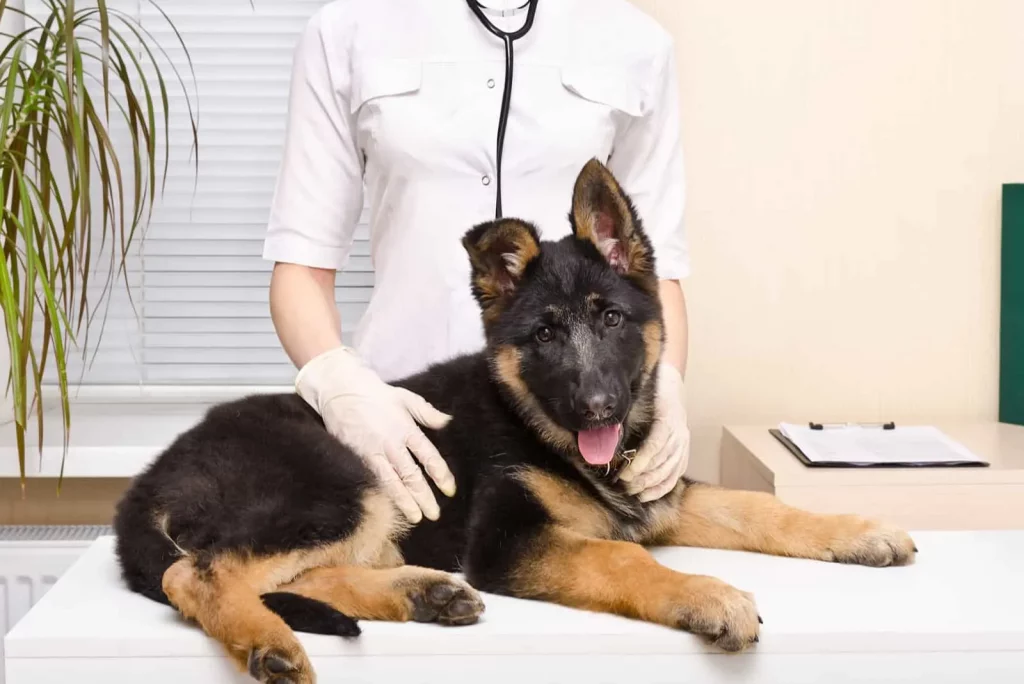
German Shepherds are prone to certain health conditions. For example, a German Shepherd is susceptible to hip and elbow dysplasia, which can cause joint pain and mobility issues.
They are also at risk for bloat, a severe condition that can occur when the stomach twists or fills with gas. German Shepherds are also susceptible to skin allergies and ear infections.
Luckily, there are ways that owners can take to help prevent these health problems.
For example, feeding your German Shepherd a high-quality diet and providing plenty of exercises can help reduce the risk of hip and elbow dysplasia.
Keeping their stomachs empty before vigorous exercise can help prevent bloat. And regular grooming can help reduce the risk of skin allergies and ear infections.
If you have concerns about your pup’s health, speak with your veterinarian. They will be able to provide you with more information and answer any questions you may have.
How Long Should 4-Month-Old German Shepherds Sleep

German Shepherds need a lot of sleep at four months, averaging about 18 to 20 hours daily. Most of this sleep will be during the day, with short naps between play periods.
It is usual for puppies as they are growing rapidly and their bodies need lots of rest.
At night, four-month-old German Shepherds will typically sleep for several hours.
If your puppy is sleeping more or less than this, it is best to consult with your local veterinarian to rule out any health problems.
Exercise Needs for a 4-Month-Old German Shepherd
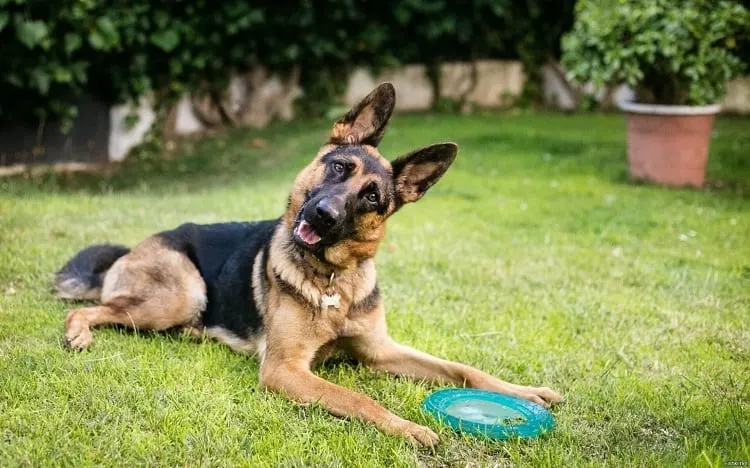
As German Shepherds grow, their exercise needs will change. Puppies need short bursts of energetic play several times daily, while adults can handle more prolonged periods of moderate activity.
Your German Shepherd should be getting at least 30 minutes of exercise per day at four months old. It can be through walks, runs, or interactive games.
If possible, try to break up their training into two or three shorter sessions throughout the day.
As they get older and more confident, you can gradually increase the amount and intensity of their exercise. Just make sure not to overdo it, as this can lead to joint problems later in life.
Also read:
- How to Take Care of a 3-Month-Old German Shepherd
- How to Take Care of a 1-Month-Old German Shepherd Puppy
- 8-Week-Old German Shepherd – Routine And Care
Conclusion
German Shepherds are intelligent, loyal, and hardworking dogs that make great companions.
At four months old, they’re just beginning to enter their teenage years and will undergo several physical and behavioral changes.
To help your GSD pup through this time, provide plenty of chew toys, exercise, and positive reinforcement training.
This way, your little buddy will grow into a well-rounded adult dog with patience and consistent care. We hope this guide was helpful to you!
Resources:

























